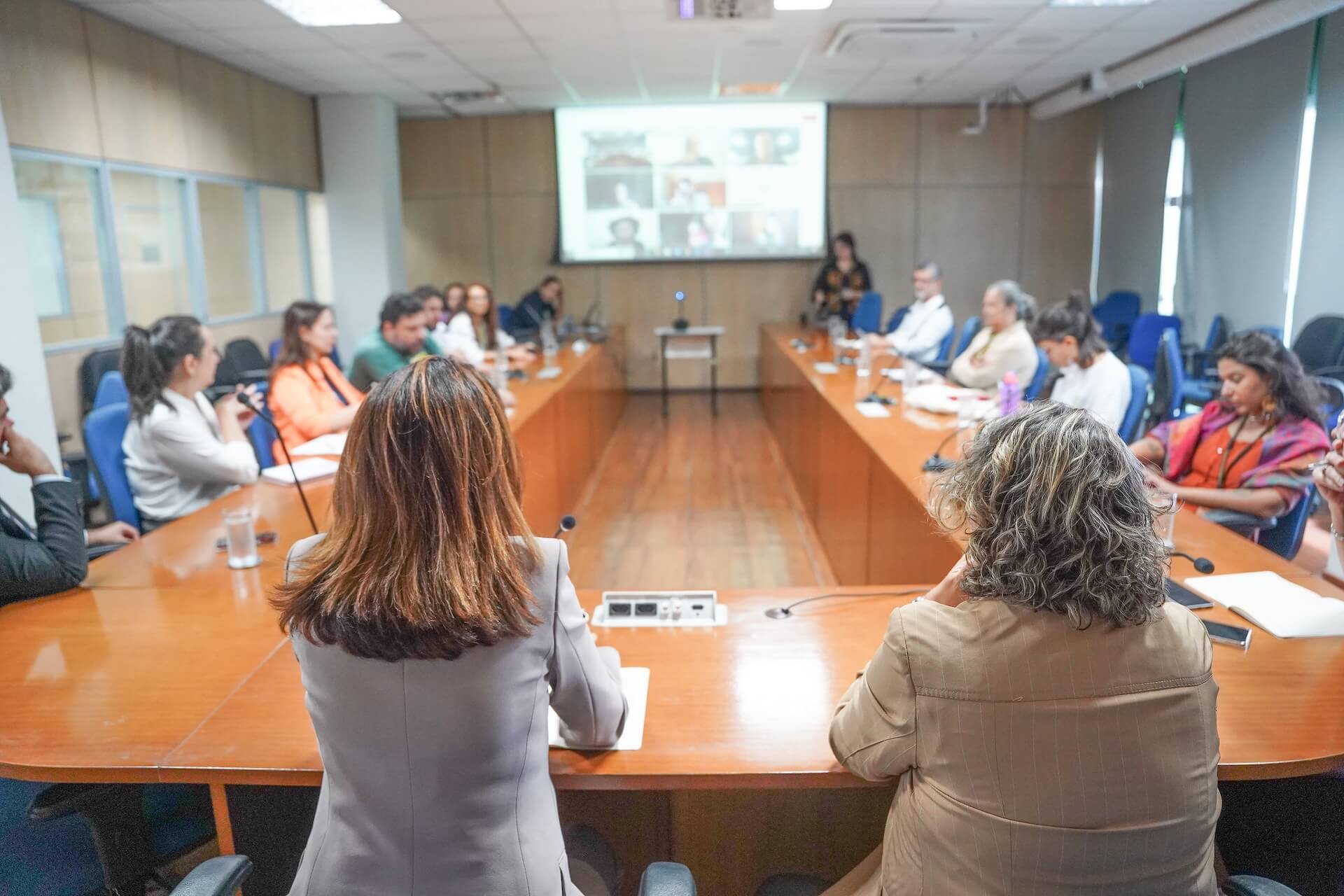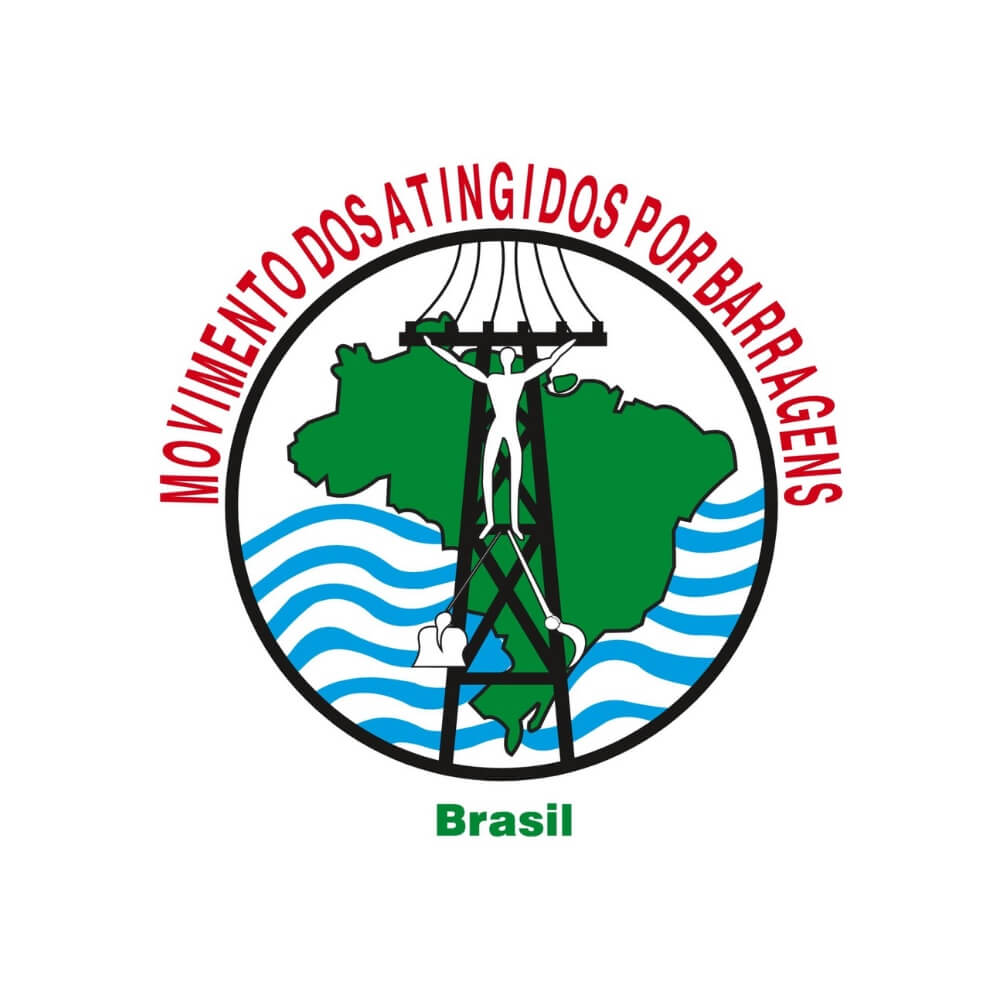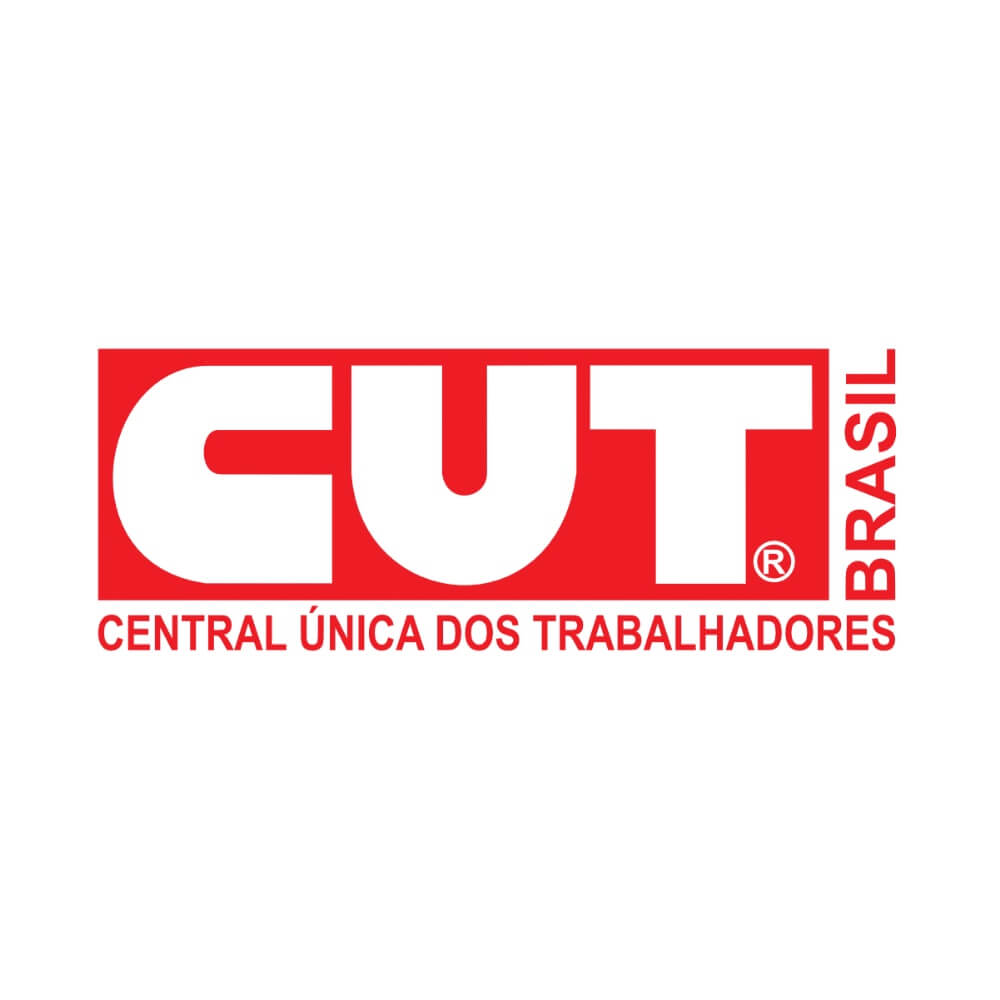“COP30 can be an important symbol that multilateralism is alive”, says the COP30 CEO in a meeting with civil society
Ana Toni, COP30 CEO, and Brazilian ambassador Lilian Chagas received representatives of social movements at the Ministry of the Environment and Climate Change(Ministério do Meio Ambiente e Mudança do Clima/ MMA) to hear their requests and proposals concerning the Conference.

By Franciéli Barcellos de Moraes / francieli.moraes@presidencia.gov.br
On Wednesday, 16 April (after rounds of sectoral meetings with indigenous peoples, women's movements, and the black movement), the COP30 Executive Secretary welcomed representatives from a wide range of civil society organizations—both online and in person— to MMA for an opportunity to hear proposals and clarify doubts about the conference's dynamics. The meeting is another stage in the process of building the agenda for COP30.
“"We hope and believe that COP30 can be an important symbol that multilateralism is alive - and that it's the only way to deal with climate change."
On the occasion, the COP30 CEO, Ana Toni, outlined the project launched by the United Nations (UN) and the Presidency of Brasil, in the figures of Secretary-General António Guterres and President Luiz Inácio Lula da Silva, respectively, to receive proposals for the agenda to tackle climate change from different people worldwide. “It's a process, it's still being outlined, but there will be events in different regions of the planet, including scientists, artists, religious leaders, so that we can look at some of the negotiating issues through these other languages,” she said.
Ana Toni also stressed the importance of the COP in Brasil as a moment to affirm consensual climate ambitions, but also multilateralism, as a factor in achieving climate goals. "We hope and believe that COP30 can be an important symbol that multilateralism is alive - and that it's the only way to deal with climate change. It's a very strong message that has to come out of the COP, and that civil society has much to help," said the CEO.
Ambassador Lilian Chagas, director of the Climate Department at the Ministry of Foreign Affairs (Ministério das Relações Exteriores/MRE), who since COP28 has acted as Brasil's chief negotiator, also joined in and emphasized Brasil's efforts to bring the Conference closer to civil society. “Brasil is proposing a different COP, a multidimensional one, with results and outcomes beyond the traditional multilateral negotiations,” she said.
Civil society input



The Homeless Workers' Movement (Movimento de Trabalhadores Sem-Teto/MTST), the Landless Rural Workers' Movement (Movimento dos Trabalhadores Rurais Sem Terra/MST), the Group of Institutes, Foundations and Enterprises (Grupo de Institutos Fundações e Empresa/GIFE), he Climate Observatory (Observatório do Clima/OC) and the Brazilian Forum of NGOs and Social Movements for the Environment and Development (Movimentos Sociais para o Meio Ambiente e Desenvolvimento/FBOMS) were some of the other organizations present at the gathering.
English Version: Trad. Bárbara Menezes
Proofreading by Enrique Villamil
